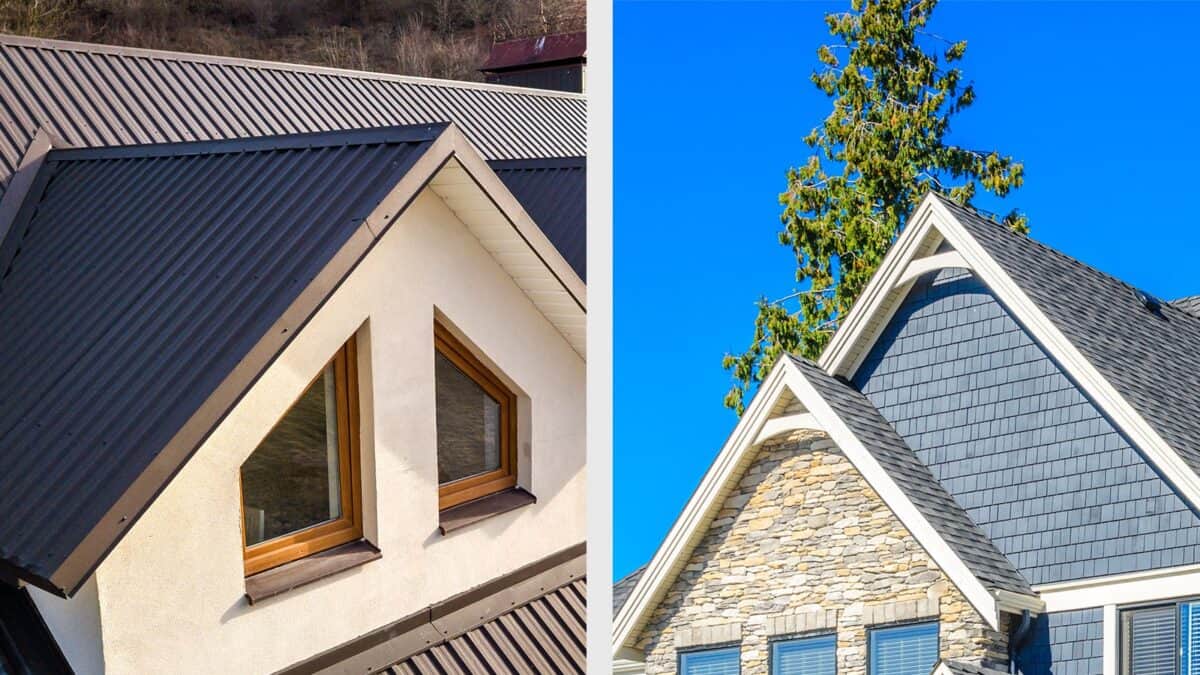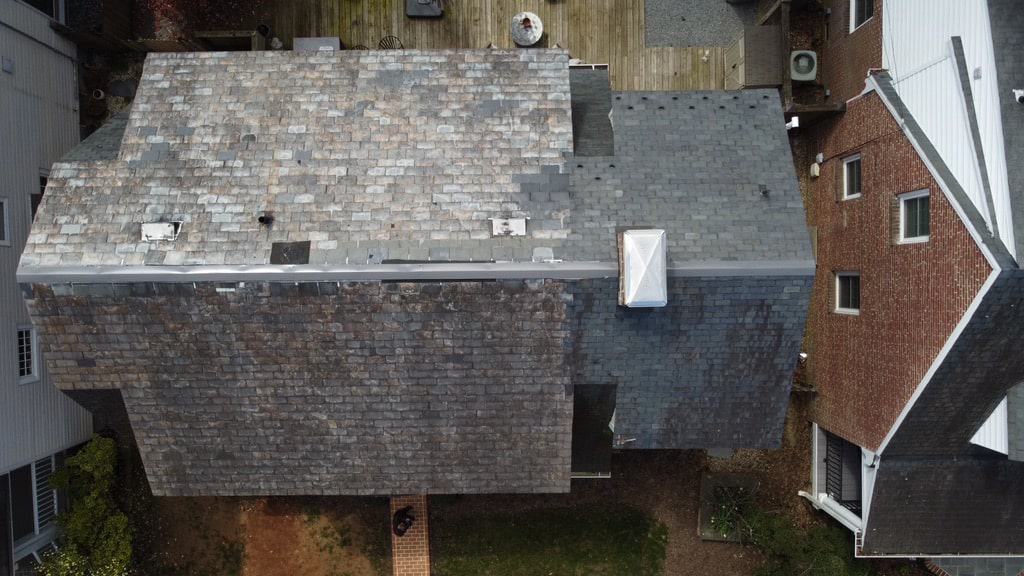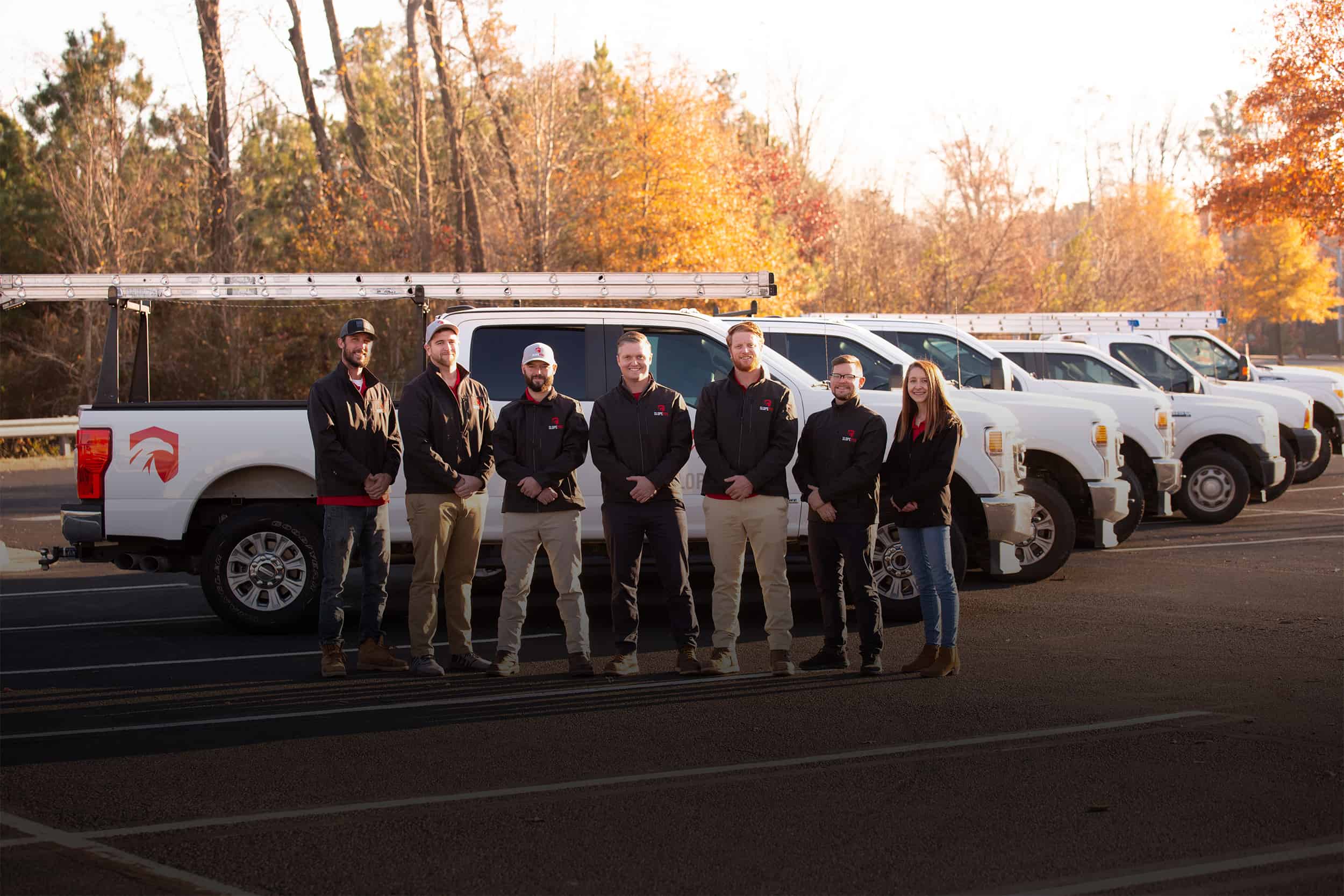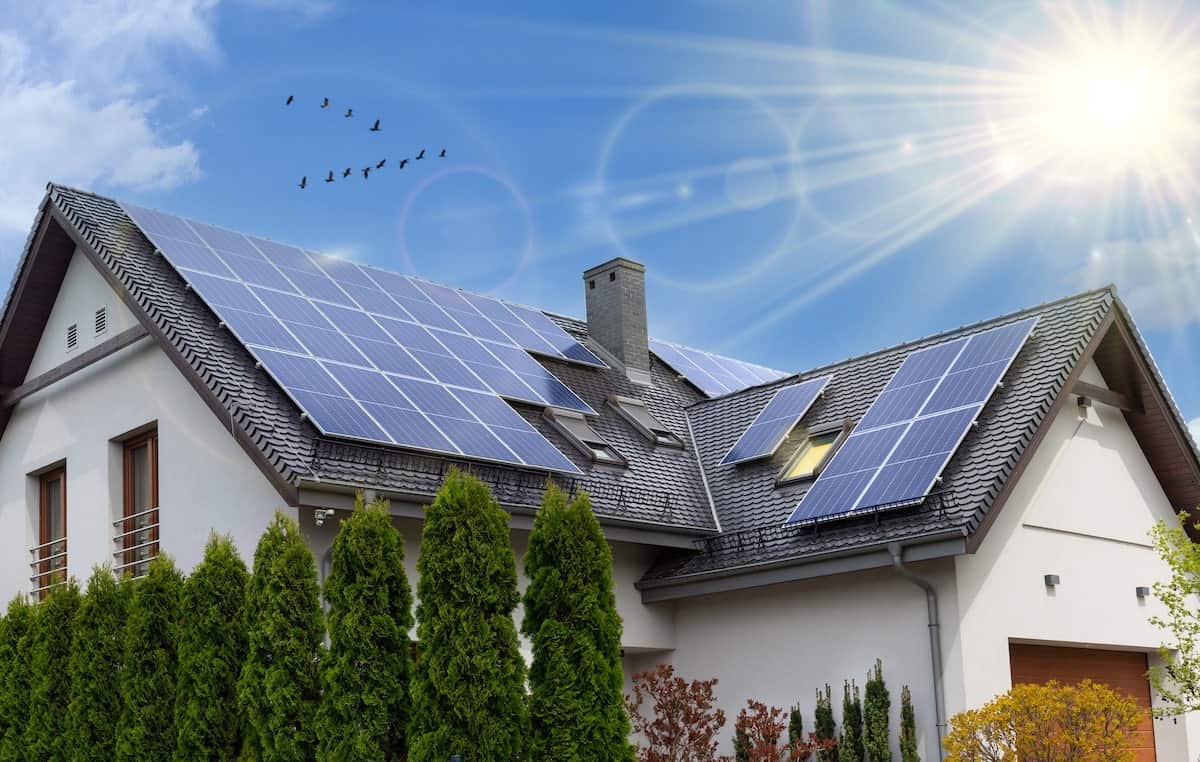Choosing the right roofing material is a crucial decision for homeowners, as it not only affects the aesthetics of their home but also provides protection against the elements. When it comes to roofing options, two popular choices that homeowners often consider are metal roofs and asphalt shingles. Both materials offer their unique advantages and considerations, and understanding their differences can help homeowners make an informed decision. In this blog post, we will compare metal roofs and asphalt shingles, taking into account the specific aspects of Central Virginia and Southern Atlanta, Georgia, including seasonal weather patterns, to assist homeowners in selecting the ideal roofing material for their homes. By the end of this article, you’ll have a clearer understanding of the pros and cons of each option, enabling you to make a well-informed choice that suits both your preferences and the climates of Central Virginia and Georgia.
Jump Ahead
Metal Roofs: A Durable and Sustainable Roofing Option
Metal roofs have gained significant popularity among homeowners due to their durability, longevity, and eco-friendly nature. Made from various types of metal such as steel, aluminum, or copper, metal roofs offer a range of benefits that make them a compelling choice for both residential and commercial properties. Let’s explore the pros and cons of metal roofs, the different types available, their cost considerations, maintenance requirements, longevity, and eco-friendliness.
Pros of Metal Roofs
- Exceptional Durability: Metal roofs are renowned for their ability to withstand harsh weather conditions, including heavy rain, high winds, snow, and hail. They are highly resistant to cracking, warping, and corrosion, ensuring long-term protection for your home.
- Longevity: Metal roofs have an impressive lifespan, often lasting 50 years or more with proper maintenance. This longevity surpasses that of traditional asphalt shingles, making metal roofs a cost-effective investment in the long run.
- Energy Efficiency: Metal roofs are reflective, meaning they can reflect a significant amount of solar heat away from the home. This property helps to reduce cooling costs during hot summers, particularly in regions with high temperatures like Central Virginia and Georgia.
- Fire Resistance: Unlike some other roofing materials, metal roofs are highly fire-resistant. They are non-combustible and can help protect your home from external fire sources, providing an added layer of safety.
Cons of Metal Roofs
Higher Initial Cost: Metal roofs tend to have a higher upfront cost compared to asphalt shingles. However, considering their long lifespan and durability, they often prove to be a worthwhile investment.
Noise Level: Without proper insulation, metal roofs can be noisy during heavy rain or hailstorms. However, advancements in insulation materials have significantly reduced this issue, and many homeowners do not experience excessive noise.
Types of Metal Roofs
- Standing Seam: This type of metal roof features raised seams that interlock to provide superior waterproofing. Standing seam roofs have a sleek appearance and are highly resistant to leaks.
- Metal Shingles: Metal shingles mimic the appearance of traditional roofing materials like slate or wood but offer the added benefits of metal, such as durability and longevity.
- Corrugated Metal: Known for their distinctive wavy pattern, corrugated metal roofs are often used in agricultural or industrial settings. However, they can also be an attractive option for certain residential applications.
Cost Considerations
The cost of a metal roof installation varies depending on factors such as the type of metal, roof size, complexity of the design, and location. While metal roofs may have a higher upfront cost compared to asphalt shingles, their longevity and durability often offset the initial investment.
Maintenance Requirements
Metal roofs are generally low-maintenance, requiring periodic inspections and simple cleaning. They are resistant to mold, mildew, and pests. It’s recommended to clear any debris or snow accumulation and ensure that the roof is free from any potential sources of damage.
Longevity
Metal roofs have an impressive lifespan, typically lasting 50 years or more. Their resistance to weathering, fading, and deterioration contributes to their extended durability.
Eco-Friendliness
Metal roofs are considered an environmentally friendly choice due to their recyclability and energy efficiency. They are often made from recycled materials and can be recycled at the end of their lifespan. Additionally, their energy-saving properties can help reduce carbon footprint by decreasing the reliance on heating and cooling systems.
Asphalt Shingles: A Versatile and Cost-Effective Roofing Choice
Asphalt shingles are one of the most popular roofing materials for residential properties. Made from a composite of fiberglass or organic materials coated with asphalt, they offer a range of benefits that make them a reliable and cost-effective roofing option for homeowners. Let’s explore the characteristics, pros and cons, types, cost considerations, maintenance requirements, longevity, and eco-friendliness of asphalt shingles.
Characteristics of Asphalt Shingles
Asphalt shingles are available in a variety of styles, colors, and textures, allowing homeowners to choose a look that complements their home’s architecture and personal preferences. They are lightweight, making them easy to install and suitable for various roof designs.
Pros of Asphalt Shingles
- Affordability: Asphalt shingles are one of the most budget-friendly roofing options available. They offer an excellent balance between cost and durability, making them accessible to a wide range of homeowners.
- Easy Installation: Asphalt shingles are relatively easy to install, reducing labor costs and installation time. Their lightweight nature also simplifies the installation process.
- Versatility: Asphalt shingles are versatile and can be used on a wide range of roof styles, from steeply pitched roofs to more complex architectural designs.
- Variety of Styles: Asphalt shingles come in different styles, including three-tab shingles and architectural or dimensional shingles. This variety allows homeowners to choose the look that best suits their aesthetic preferences.
Cons of Asphalt Shingles
- Limited Lifespan: While asphalt shingles are durable, they have a shorter lifespan compared to some other roofing materials. Depending on the quality of the shingles and weather conditions, they typically last between 15 to 30 years.
- Vulnerability to Extreme Weather: Asphalt shingles can be more susceptible to damage from extreme weather conditions, such as heavy winds, hail, and temperature fluctuations. However, advancements in shingle technology have improved their resistance to such factors.
Types of Asphalt Shingles:
- Three-Tab Shingles: These are the most basic and affordable type of asphalt shingles. They consist of a single layer with cutouts, giving the appearance of three separate shingles when installed.
- Architectural or Dimensional Shingles: These shingles are thicker and have a more layered and textured appearance. They provide a three-dimensional look to the roof and are known for their durability and enhanced aesthetics.
Cost Considerations:
Asphalt shingles are known for their affordability compared to other roofing materials. The cost of installation depends on various factors, including the size of the roof, location, complexity of the design, and choice of shingle type. Overall, asphalt shingles offer a cost-effective roofing solution for homeowners.
Maintenance Requirements:
Asphalt shingles require regular maintenance to ensure their longevity and performance. This includes periodic roof inspections, gutter cleaning, and removal of debris. Additionally, any damaged or missing shingles should be promptly replaced to prevent leaks and water damage.
Longevity:
The lifespan of asphalt shingles typically ranges from 15 to 30 years, depending on various factors such as quality, climate, and maintenance. Regular roof inspections and proper maintenance can help maximize their lifespan.
Eco-Friendliness:
While asphalt shingles are not as environmentally friendly as some other roofing materials, efforts are being made to increase their sustainability. Some manufacturers produce asphalt shingles with recycled materials, reducing their environmental impact. Additionally, shingles can be recycled at the end of their lifespan, contributing to waste reduction.
Choosing the ideal roofing material for your Central Virginia or Georgia home requires careful consideration. Metal roofs offer durability, longevity, energy efficiency, and eco-friendliness, while asphalt shingles provide affordability, a variety of styles, and easy roof repair maintenance. SlopePro can assist you in making an informed decision by considering the specific aspects of Central Virginia and Georgia’s climates. With our expertise, you can select the roofing material that best suits your needs, ensuring long-lasting protection and aesthetic appeal. Trust SlopePro to guide you in making the right choice for your home.




